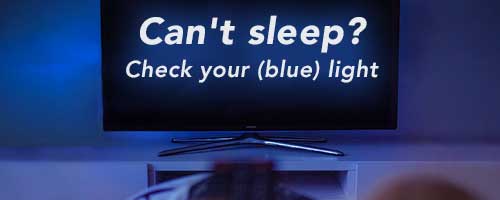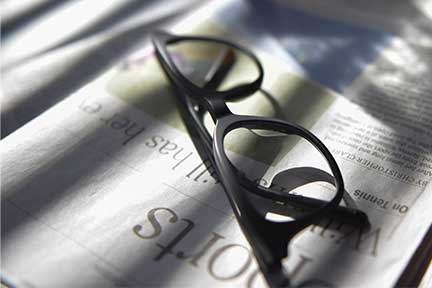Can't sleep? Check your (blue) light

There are many factors that keep people up at night, including stress, poor eating habits and environment. But many people don't realize that their exposure to light may be what is keeping them up at night.
The presence of light not only makes it more difficult to fall asleep, but it also influences the timing of our biological clocks. Exposure to light symbolizes to the body that it is the morning and time to be awake, so getting too much light before trying to go to bed makes it more difficult to fall asleep.
According to an article in the San Francisco Chronicle, a new study done by the Surrey Sleep Research Centre in the UK found that the effect nighttime light exposure has on our circadian rhythm disrupts sleep quality and suppresses the body's production of the hormone melatonin. Natural melatonin production not only improves the quality of sleep, but it also has many health benefits and can help prevent certain kinds of cancer and Type 2 Diabetes. Not all light exposure causes problems; it's the blue light ray keeps us up the most. Blue light comes naturally from the sun, which for centuries has conditioned humans to wake up when exposed to it. Today, blue light comes from other manmade sources too, including light bulbs and computer screens. Needless to say, avoiding nighttime exposure to blue light is crucial to getting a good night's sleep.
To lessen your exposure to blue light before bed time:
-
Use an incandescent bulb
instead of a compact fluorescent of LED bulb in your bedside lamp to help lower the levels of blue light in your room. -
Wear glasses that eliminate blue light.

-
Remove blue light from your laptop.
If you use your computer late into the night, try downloading the free software F.lux for your laptop. This software automatically dims the screen light in the evening, eliminating blue light exposure at night. You can find out more about this free software at http://stereropsis.com/flux/
